Tesla Powerwall 2 Vs LG RESU Vs Sonnen ECO Vs BYD
We compare the leading AC batteries from Tesla and Sonnen against the popular DC-coupled batteries from LG and BYD. A direct comparison is not easy as each battery type has distinct advantages and disadvantages, depending on the application and amount of storage capacity required. Other factors include the location (indoors or outdoors) and whether the battery is retrofitted to a home with an existing solar system. This is a companion article; the full battery comparison criteria are explained in the detailed home solar battery storage guide.
AC-coupled Batteries
Tesla Powerwall 2 and Sonnen ECO
Both the Tesla Powerwall 2 and Sonnen ECO are AC batteries, meaning they have integrated battery inverters and are connected via AC coupling. These battery systems require an additional solar inverter to operate with a solar array. One of the notable benefits of AC batteries is that you can retrofit them to any home with an existing solar system. You can retrofit battery storage systems via AC coupling inverters such as the SMA Sunny Boy Storage. However, in this article, we will focus on the most popular AC battery options.
One of the disadvantages of AC-coupled batteries is the slightly lower efficiency; AC battery round trip efficiency (charging and discharging losses) is around 88% to 90%, while most DC batteries average closer to 96%. The additional losses are due to the multiple power conversions; first, the solar inverter converts the DC solar power to AC. The battery inverter then converts from AC to DC during battery charging and finally back to AC during discharge. However, these additional losses are a relatively small compromise.
A basic layout diagram of an AC battery storage system - See more in the AC vs DC-coupled review
The Tesla Powerwall 2 is the only liquid-cooled battery on the market, which gives it a wide operating temperature range (-20 to 50 deg C) and is less likely to derate (reduce power output) in both high ambient temperatures and extremely low temperatures. Furthermore, it has a high weather rating (IP56), meaning it can safely be installed outside. However, as with any battery system, it is always wise to install it in a sheltered location out of direct sunlight. The Sonnen ECO on the other, hand has a low (IP20) weather rating and cannot be installed outside unless an additional enclosure is used at additional cost. In regards to storage capacity, the Powerwall 2 is only available in the one 13.5kWh size, while the Sonnen ECO is a modular system with multiple configuration options from 5kWh up to 15kWh.
Battery life and power ratings
In terms of life span and warranty, the Sonnen ECO battery uses Lithium LFP (Lithium Ferro Phosphate) battery cells and comes with one of the best warranties on the market, with an estimated 80% retained capacity after 10 years, or up to 10,000 complete recharge cycles. The Powerwall 2, on the other hand, uses Lithium NMC cells similar to those used in electric vehicles, with an estimated minimum of 70% retained capacity after 10 years. Although in regards to power output, the lithium NMC batteries used by Tesla have a much higher discharge rate which provides greater power output, 5kW continuous, compared to a maximum of 3.3kW power rating from the Sonnen ECO.
Battery power output rating comparison chart - Continuous and peak power ratings
DC-coupled Batteries
LG RESU and BYD B-Box
Both the LG RESU and BYD B-Box are DC-coupled batteries. These Lithium battery systems are designed to be used with a compatible hybrid inverter for grid-tie systems or a more powerful multi-mode inverter for off-grid installations. Compared to the relatively small number of AC battery options on the market, the numerous DC batteries are compatible with a wide range of popular hybrid and multi-mode inverters such as the SolarEdge StorEdge inverters, Sungrow hybrid, Huawei hybrid, Solax hybrid and the powerful off-grid inverters from Victron Energy, SMA and Selectronic. Having a wide range of inverter options means the DC battery systems can be configured to suit a large variety of different solar installations, from simple, economical self-use systems in homes to more powerful off-grid installations with backup for high loads.
Basic DC coupled battery system diagram with a common hybrid inverter plus backup AC output.
Battery life and DC power rating
While the LG and BYD batteries are both DC coupled, they have several important differences including cell chemistry, design and configuration options. The BYD battery is a modular system comprised of multiple smaller capacity 4.0kWh battery modules. The LG batteries, on the other hand, are much larger single battery modules. A key difference is LG chem use Lithium MNC pouch cells, while BYD uses the more common Lithium LFP cells. Despite these differences, both batteries have similar performance characteristics and expected lifespan which is highlighted in the detailed complete solar battery review.
ITP Battery Test Centre - ITP Renewables in Canberra Australia have been running battery performance tests at the Canberra Institute of Technology since 2016. The tests are performed in a climate-controlled environment to simulate real-world conditions in an accelerated manner. Results so far revealed the LG RESU battery outperformed the first generation BYD battery. The BYD LVS battery has only recently been added so there is not enough data yet to analyse. It is early days, but the LG RESU and PylonTech batteries have shown very good results with low degradation and high SOH (state of health) after several thousand cycles.
ITP Renewables battery test center results - March 2021 - Image credit ITP renewables
The biggest difference between the two DC battery options is the LG Chem RESU10 is limited to 5kW continuous power output (even with multiple batteries connected in parallel), while BYD is infinitely scalable to deliver much higher continuous and peak power. The 5kW limitation of the LG chem is generally only an issue for home with very larger power requirements or off-grid systems.
Tesla Powerwall 2
AC-Coupled Battery
The Tesla Powerwall 2, with 13.5kWh of 'usable' storage capacity, is an AC battery with an integrated 5kW DC-AC inverter/charger. AC batteries can be fitted to homes with existing solar installations which can make installation simpler, however, it still requires a solar inverter to function with a solar array. Plus, the additional Tesla gateway box is required to enable backup power (UPS) during a grid outage.
The Powerwall 2 uses a lithium nickel-manganese-cobalt (NMC) cell chemistry developed in collaboration with Panasonic as the battery cells are similar to the batteries used in the Tesla electric vehicles. The unit features an integrated battery management system (BMS), liquid thermal management, and inverter charger. The new Powerwall 2 will have the capability to work in parallel with up to 9 units for homes/businesses with greater energy storage requirements.
COST: Approx $11,000 inc GST, excludes backup gateway
13.5kWh usable for 3500 cycles - estimated 70% retained capacity
DC-AC Inverter included
Power output (AC) – Continuous = 5.0kW, Maximum Peak= 7.0kW
Round trip efficiency (claimed) = 89% including inverter losses
Cost = $11,000 (US$8,500) – Cost per usable kWh = $858
Warranty is 10 years
LG Chem RESU
DC-Coupled Battery
LG offers a large range of RESU (Residential Energy Storage Unit) batteries in various sizes from 3.3kWh up to 13kWh in two voltage options, 48V and 400V. The company also just launched the new RESU Prime battery series with capacities from 10kWh up to 16kWh. Learn more about the range of new RESU batteries here.
The 48V range includes RESU6.5, RESU10 and RESU13 units with an option to combine different units using an adapter for up to 19.6kWh of total storage.
LG uses a lithium polymer pouch with lithium nickel-manganese-cobalt (NMC) cell chemistry. The RESU batteries are housed in compact weather-rated (IP55) enclosures with integrated BMS and are warranted to 10 years of life, but this is to a minimum 60% retained capacity (EOL). Based on current performance estimates, it is expected the capacity after 10 years would be in the range of 60 to 70%.
COST - RESU H 9.8kWh - From $8800 inc GST
RESU10 - 8.8 kWh usable for 3500cycles to 60% retained capacity (EOL)
Power output: Continuous = 5.0kW (RESU10 48V)
Power output: Peak = 7.0kW
Round trip efficiency (claimed) = 96%
Cost LG RESU10 = $7200 (US$5000) – Cost per usable kWh = $681
Warranty is 10 years
BYD Premium LVS
DC-Coupled Battery
BYD Premium LVS battery system
BYD is the largest Chinese manufacturer of rechargeable lithium batteries and has dominated the Chinese electric vehicle and energy storage market for some time. The company manufactures a wide range of energy storage systems for commercial and residential applications, primarily using LFP or Lithium Ferro Phosphate cells, which are considered the safest and most stable battery chemistry, as explained in our detailed battery article.
The BYD premium LVS is a low voltage (48V), modular, stackable battery system that has become popular due to its competitive pricing and compatibility with many leading inverter brands. BYD also offer a range of HV or high voltage (400V) battery systems compatible with the emerging and popular hybrid solar all-in-one inverters for grid-connected homes. The LVS system comprises 4.0kWh modules, and up to 6 modules can be stacked in a single tower, for a total of 24kWh. For larger systems requiring greater storage, multiple towers of 4 modules can be linked together with a maximum of 16 towers, or 256kWh.
The BYD warranty specifies a minimum of 60% EOL (End of life) capacity remaining after 10 years or minimum throughput energy as specified in the warranty document. The battery modules operate at the nominal voltage of 51V and have a high peak power output of 4.6kW (per module) over a short 5-second duration.
4.0kWh (100%) usable per module
Scalable from 4kWh to 256kWh
Power output: Continuous = 3.3kW,
Power output: Peak 4.6kW (5 sec)
Round trip efficiency = 95.0%
Cost: BYD B-Box LVL 4.0kWh = AU$3,000 – $ per usable kWh = AU$750
Warranty: 10 years to 60% retained capacity (EOL). Ref Warranty document.
IP55 weather rating – Suitable for protected outdoor areas
SonnenBatterie ECO
AC-Coupled Battery
Sonnen is the leading German lithium battery manufacturer and Europe's largest residential lithium battery system company. Until recently, Sonnen deployed the largest number of home battery systems globally, surpassing Tesla and LG. The SonnenBatterie ECO range is much like the Tesla Powerwall 2 in that it is an AC battery with a built-in DC-AC inverter, but it still requires an additional solar inverter to function with a solar array.
There are two main differences between the Sonnen and Tesla AC batteries, the first being that Sonnen ECO is available in a range of different sizes with capacities from 3.3kWh up to 16kWh, and the second is Sonnen uses Lithium Ferro Phosphate or LFP battery chemistry as opposed to Lithium NMC of Tesla. Lithium LFP batteries are regarded as the safest and most stable battery chemistry, with the longest life of up to 10,000 cycles.
Possibly the only real disadvantage of the SonnenBatterie ECO over other lithium battery systems is the limited inverter power rating, which is a maximum of 3kW for single-phase and 3.3kW for 3-phase systems.
ECO10 - 10kWh usable for 3500cycles to 80% retained capacity (EOL)
Power output: Continuous = 3kW
Power output: Peak = 3.3kW
Round trip efficiency (estimated) = 90% including inverter losses
Cost 10kWh ECO = AU$11,000 (US$8,200) – Cost per usable kWh = $1140
The warranty is 10 years
Battery comparison Results
Cost per kWh over the life of the battery system - usable capacity
Results in the chart above include all ten batteries from the detailed home solar battery guide.
AC Vs DC-coupled Systems
An advanced AC coupled hybrid system using a DC coupled battery and multi-mode inverter.
For more details about AC vs DC coupled solar systems see our detailed comparison including the four main solar battery system types. It may sound confusing as DC batteries can be connected to inverters in either AC or DC coupled systems, depending on the installation type. Generally grid-connected homes use DC coupled systems while more advanced off-grid and larger scale systems are AC coupled systems, which are different to AC batteries.













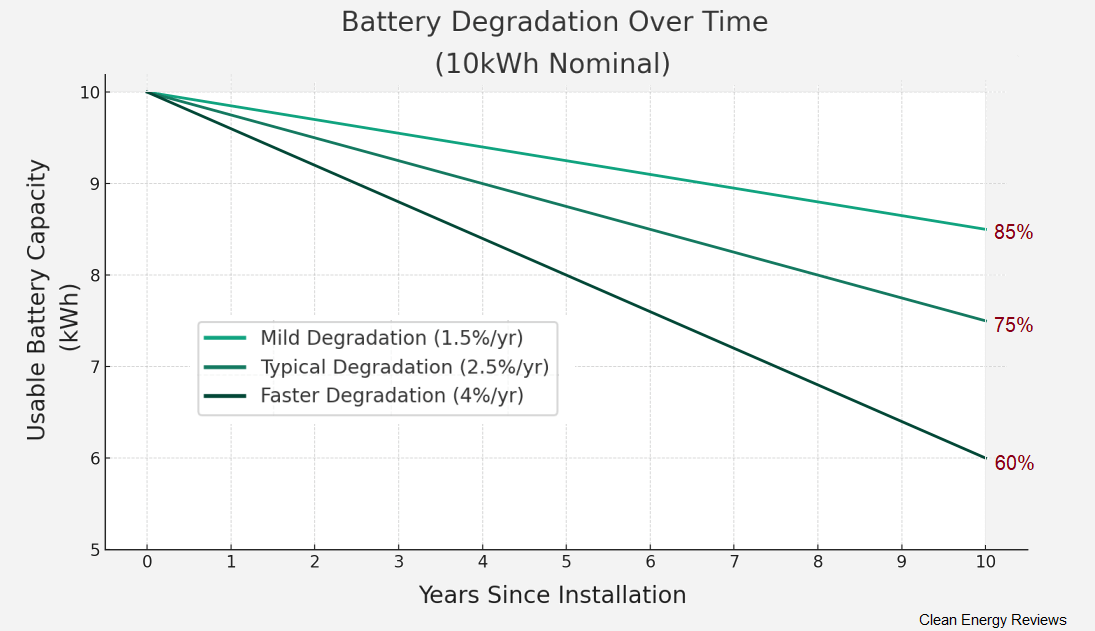
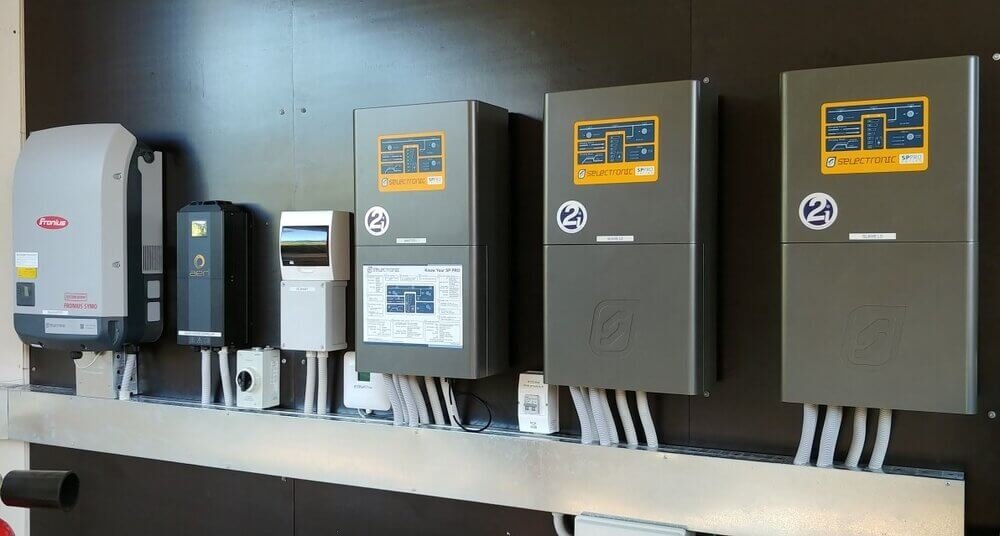
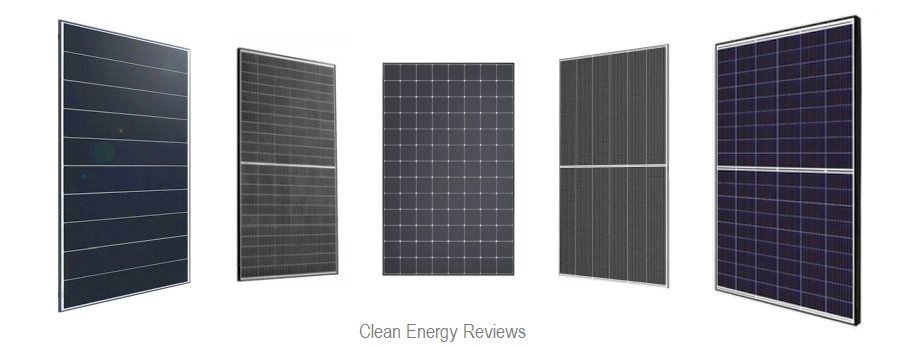

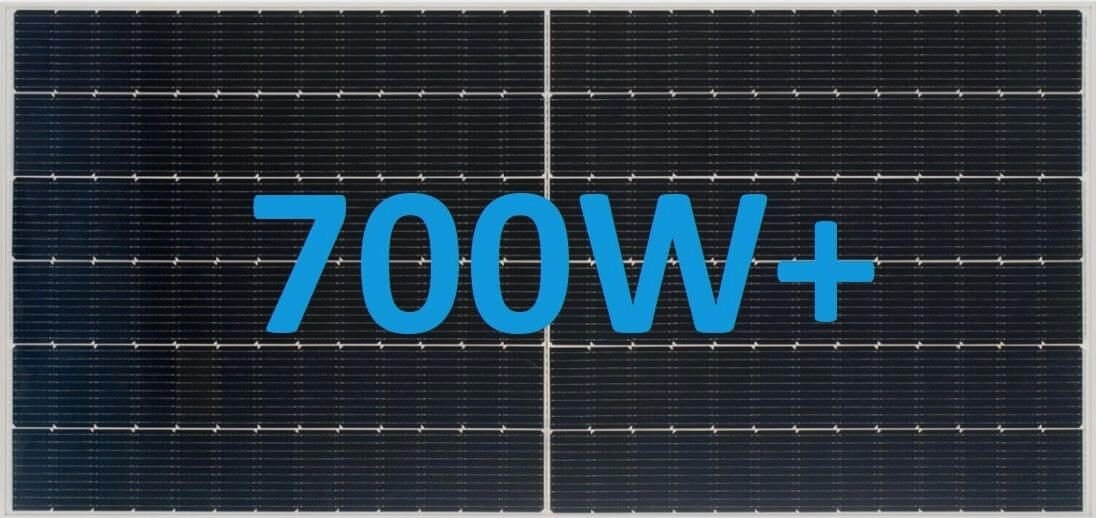

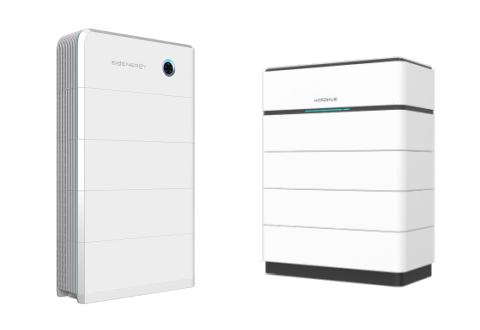
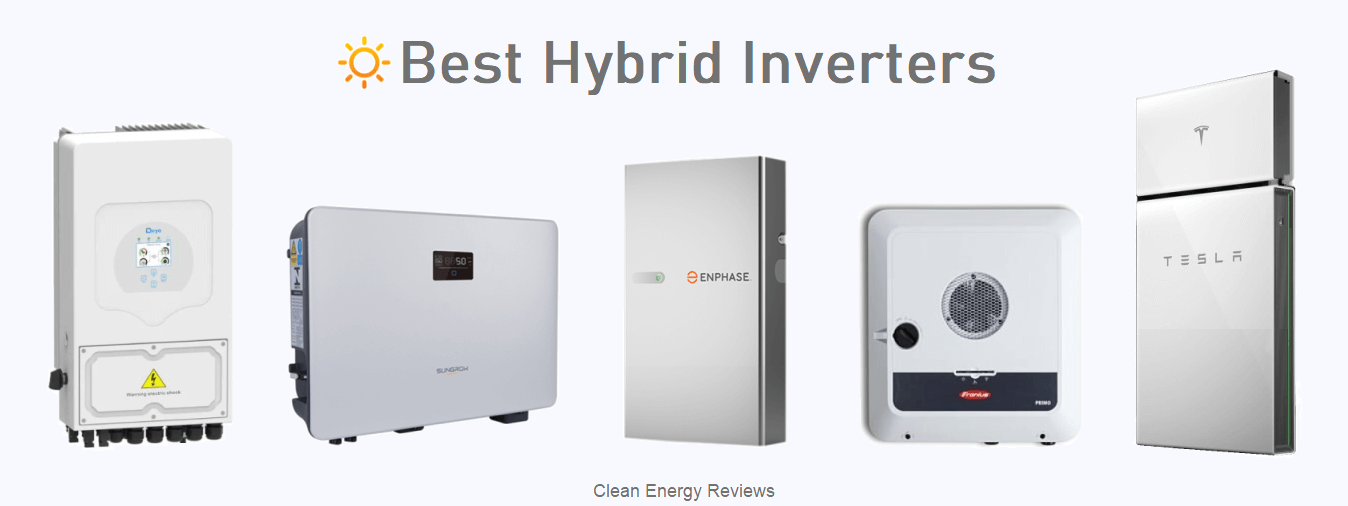
The comprehensive guide to solar battery and off-grid systems. How to select and size a home solar battery system and how much it may cost you. Also, alternatives to adding batteries and how energy efficiency can save you more than adding a battery.